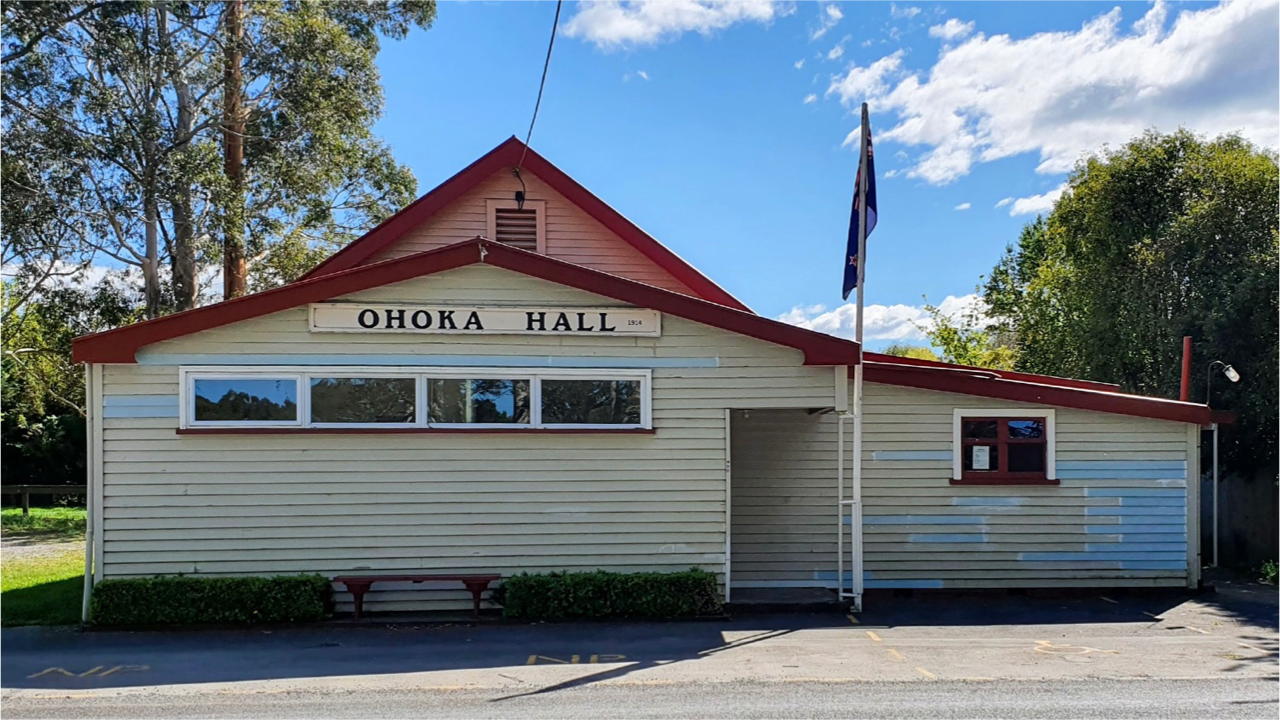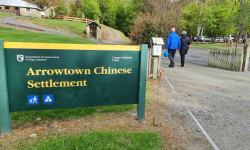
Jonathan Melville in conversation with Raewyn Moodie about how Ohoka Congregation Rangiora is on a journey toward all-age discipleship.
Jonathan Melville is an Associate Pastor at Rangiora Baptist Church—one church who connect at five gatherings across three locations, one of these locations is the Ohoka Hall. Raewyn Moodie is the President of the Baptist Union of New Zealand. This article was first published in the October eConnect, the newsletter for Baptist Children & Family Ministries.
Raewyn: When did you embark on this journey and what had unsettled you about traditional church to cause this?
Jonathan: Back in 2019 I realised how institutionalised I had become as leader. When asked the question, ‘how has following Jesus been this week?’ I realised I was too busy doing all the stuff inspired in His name, but it was all systems stuff (Pharisaical). As I looked around the church, I realised we as leaders have absolved people of responsibility in discipleship. Why do we have so many unactivated people in our churches? We make non-engagement easy. I wanted to take traditional church structures off the table and look more at what Jesus did. His journey with the disciples was so divergent to the Pharisees. He chose several fishermen. Business people want results, certainty and systems. Fisherman have to look at wind and waves, like being prepared to go with the Holy Spirit.
Raewyn: What were the questions your leadership team originally kicked around?
Jonathan: What does it mean to be built on the rock? What are our values as Christ followers? If we didn’t have all this stuff (auditorium, sound systems, musical instruments, etc.) what would be the core? What was needed to answer the questions like “How was following Jesus this week?” If we don’t have institutionalised church—what else is there?
Raewyn: How did you facilitate everyone’s voice to be heard? How did you bring others along on the journey?
Jonathan: We began with BBQ discussions after church services a year before lockdown—chatting about how Jesus led His disciples.
We pointed out the painful reality that humans naturally want some kind of detail, but maybe it is the structure strangling us. We began redefining the goalpost, recasting vision.
Lockdown was kind of a gift, which pushed us quickly in the direction we had slowly been moving in. At Level 2 we couldn’t meet with more than 100 people so we launched out at Ohoka Hall—a 1914 building with no technology. We pointed out all the things we didn’t have. Could Christ possibly work out here in Ohoka? In discussion groups the kids said “Yes”, and retold Bible stories. We realized the value of having kids in the room with us all. We questioned do we need those things like sound system, drums? We reflected that if Jesus didn’t need them… then there was an aha moment. Were we supposed to build a church like what we are used to? What does it mean to be built on the rock? What would fall over? What are our values in this space? We have spent one year reforming our values, working through the book of Mark and looking at how Jesus discipled.
Raewyn: What does church look like in your current context?
Jonathan: We meet in the local Ohoka Hall. We have printed song books for the congregation to sing from (no technology). Musicians have organised their own roster and lead the worship time (not just sung worship). Beyond that, there are no rosters, as I believe they are counterproductive to real discipleship. Those arriving set up chairs (often children and young people lead with this) and people join in to serve morning tea and pack up.
We don’t expect the person up front to have all the answers. Everyone, including kids, joins in with answers, testimony and prayer. Bible context and background are explained by those taking the lead, but we work on interpretation together. We find that households, including kids, are going home and still talking about what was shared in church. We are putting empowerment above resourcing. Worship leaders are empowered to hand over to whoever is sharing the Word, at their discretion. Prayer is always at the center of the service. Either the worship team or the speaker will lead into prayer, but leaders tend not to pray in those spaces so we create an ‘us space’, with many in the congregation being free to pray.
We have elements of the service at our fingertips (i.e. worship, a message, discussion, testimonies) but those leading can select what to use. There is plenty of space for the Holy Spirit to move and for people to receive ministry in our time together.
Raewyn: What were/are the challenges and the role of a leader in this?
Jonathan: There is often tension between organics and messy. I’ve become keenly aware of the unspoken rule that people will defer to leadership. If we put ourselves in leadership spaces, then people will let us take over.
The leader’s role can be defending the space. A wall keeping things out, like a shepherd keeping the wolf at bay. (Could the wolf be institutionalisation?) Jesus said, “Let the little children come to me” (Matthew 19:14, NIV). Not just the quiet little children!
Jesus had a button-pushing ministry and a people-disappointing ministry. If we are truly following Jesus, do you think He will push our buttons and disappoint our preconceived ideas? The gospels are a story of what the first followers learnt on the way. They wrote what they wanted us to know. As churches we have professionalised everything. Sometimes church becomes a show. In the gospels, formation questions are being asked, like the conversation with Nicodemas. As leaders, we reflect on Jesus’ parables. Jesus asks questions. It’s an exercise of engagement for all of us trying to understand. We need to take Jesus at His word. This is tricky as a leader, when I have no idea what this will look like.
We have run the emotionally healthy spirituality course by Peter Scazzero, in small groups to give people the language to understand what has shaped them and to be able to move past that. (This challenges the paradigm of ‘busy Christian’ versus ‘contemplative Christian’.)
Raewyn: What are the next steps/growth areas for you?
Jonathan: We are regularly getting 70 to 80 on a Sunday, so if we outgrow the hall we are not sure what we should do. We need a balance of how we encourage new people to the community, while maintaining what we have.
Raewyn: Why would you encourage others to go on the same journey?
Jonathan: People are becoming friends with the openness—there is often a fear of what will happen if we let go. For us it has been so encouraging to see that, in the hand of God, one thing dovetails with another. People of all ages and stages are growing in their discipleship and reaching out to our community. That’s what we are here for.
Raewyn: Two questions I asked a young member of the congregation:
1. What do you enjoy about being a part of the Ohoka congregation?
Young member: I enjoy the fact that there is no ‘kids’ service and there is a chance for us teens and younger to contribute to the service in ways that would not be possible at other congregations. I feel that this is because there is not as many people so there are more chances to connect as a church family.
2. How do the rest of the congregation make you feel included as a young person?
Young member: I feel that I am included in the ways that the service is constructed like how there are opportunities to: play in the worship team, share testimonies, to help out with communion and partake in church discussions.


